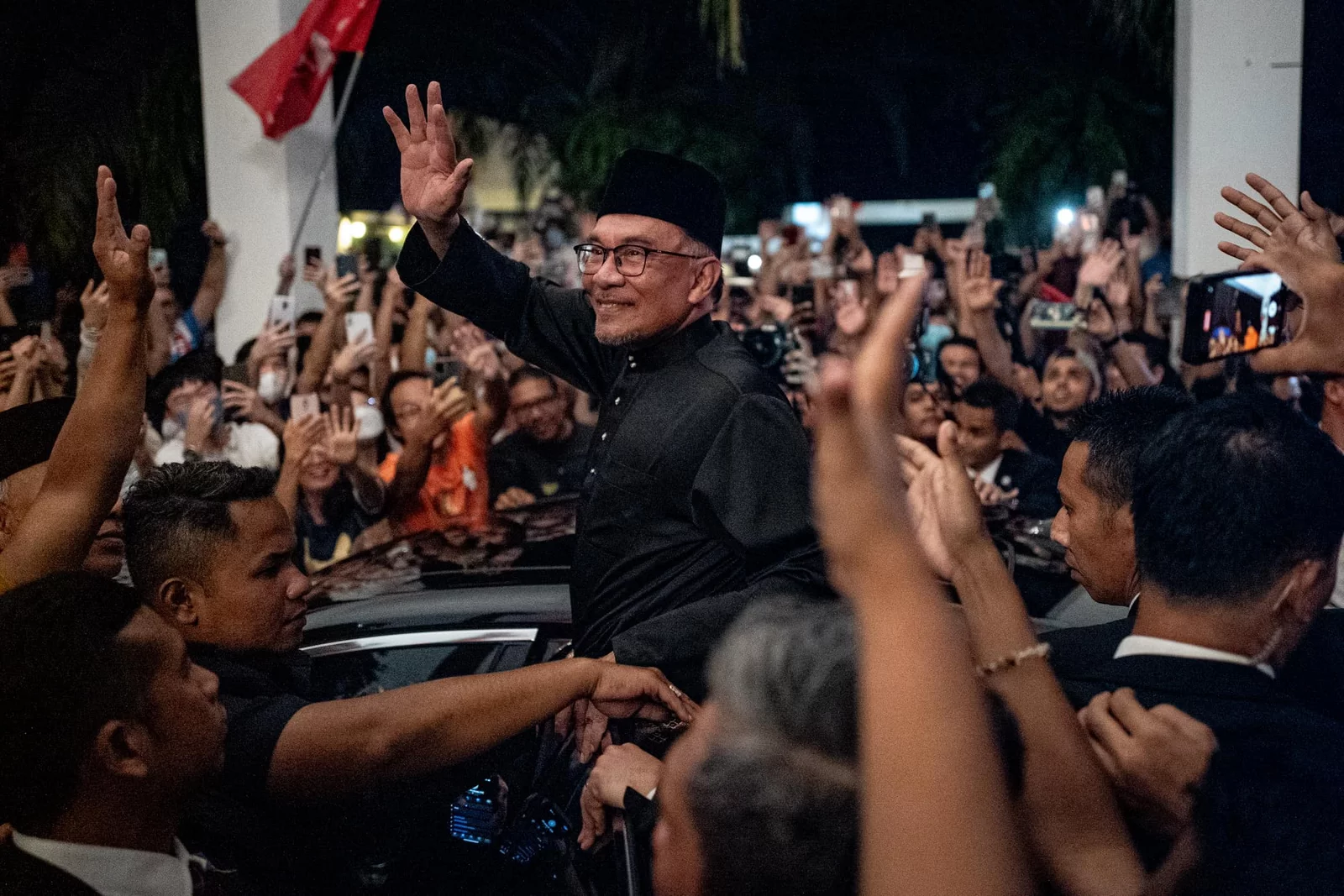Malaysia’s 15th General Election (GE15) has concluded, with Anwar Ibrahim emerging as the 10th Prime Minister despite a complex and contentious political landscape. His coalition, Pakatan Harapan (PH), won the most seats (81 seats) among other coalitions but failed short to achieve the 112 seats required to establish simple majority. This means that negotiations and often concessions have to be made with other political parties to form the next government.
Political Development
Over the next few days, PH, Barisan Nasional(BN), Gabungan Parti Sarawak (GPS), Gabungan Rakyat Sabah (GRS) and others have joined together to form unity government, with 148 out of 221 seats in parliament. The formulation of this unity government has sparked concerns among many, particularly as PH campaigned on eliminating corruption associated with BN’s multi-decade rule, while BN campaigned on rejecting Anwar and Democratic Action Party (DAP).
On one hand, democracy rests on the notion of “rule by the people” which means that people have to make concessions with each other, even when we have clashing ideologies. It is the nature of democracy that not everything we wish for can be achieved. Common ground has to be found and changes have to be implemented by under rule of law.
On another hand, corruption is a political tool and strategy often adopted by autocrats and kleptocrats to build and consolidate power within the government. This also means that our government is still subject to leaks and the taxpayer money will still be funneled to the wrong parties. Therefore, I consider this a neutral point for democratic development in Malaysia.
Concerning trends
While the electoral process has seen few plus points for the integrity of our democratic institution, we start to see a few concerning development as well.
The first concerning trend is the rise of Parti Islam Se-Malaysia (PAS), which, as part of the Perikatan Nasional (PN) coalition, secured 49 seats, the most of any single party in Malaysia. They campaigned on ethnocentrism and religious platform. The party head, Hadi Awang spurred unsubstantiated remarks that non-Malays were the root of the corruption of the government. While he has been under fire for these racist remarks, he still walks free as of this writing, and the voters from Malay heartland did not seem to mind that.
Secondly, running parallel with the trends in the rest of the world, Malaysians have also became more divisive. It’s very difficult to pinpoint the exact reason for the development, but we can observe racially sensitive remarks in social media such as TikTok. And the use of social media could become echo chamber that helps fume extremist stance.
Cabinet
The unveiling of cabinet put Anwar’s priority on display: realpolitik over principle. Key ministerial positions being held by Anwar’s own party members and controversial appointment of the BN’s party president Ahmad Zahid Hamidi as Deputy Prime Minister are among the strokes of Anwar to balance the power dynamics between the political parties while ensuring that he has treated each parties fair enough that they do not defect from the unity government. No doubt in Anwar’s mind, stability of the unity government is the top challenge he needs to address. Without this, he could not push for the reforms he promised to his voters.
Zahid as DPM
While appointment of Ahmad Zahid Hamidi was controversial to some, we should remember that we have to observe presumption of innocence, which is “innocent unless proven guilty”. Let the court, not the public, judge whether Zahid is guilty in his corruption charges.
Edited August 2024: Zahid’s corruption charges were dropped in 2023.
Role of Monarchy
Malaysian monarchy has always been playing ceremonial role with limited political authority. This time though, no doubt the Malaysian monarch has played some role here in steering the paths we took. This is the first time we have a hung parliament with no clear winner in sight. Initially not wanting to support either PH and PN, BN was urged by the Malaysian monarch to pick a side so that we can move along anyway. Ultimately this ended with Anwar becoming the 10th prime minister. Fortunately, the Malaysian monarch was careful not to overstep his authority and played his role well.
Malaysia’s future
GE15 showed that there are some positive developments for Malaysia’s democracy. We have seen a clean electoral process, we have transformed from one-party state to two-party state to a multi-party state, which is more akin to European political environment. However without the simple majority Anwar hopes for, Anwar’s hands are tied to do sweeping reforms. Negotiations, concessions and finding common ground will be the key to managing the government going forward.

Leave a Reply